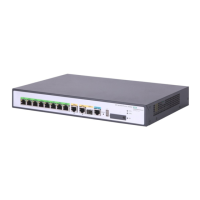279
14nKIEbexbPONspebtznxv4/xTjd1aM2rfQ95jJ/SN8H8KIyiYZyIs3t5Q+V35x1
cef+NMWgZBzwXOSP0wC9+pC2ZNiIpg==
-----END CERTIFICATE-----
# Export the local certificates and their private keys in the PKI domain to a file named cert-lo.der in
PKCS12 format. The password for the private keys is 123.
<Sysname> system-view
[Sysname] pki export domain domain1 pkcs12 local passphrase 123 filename cert-lo.der
# Export all certificates in the PKI domain to a file named cert-all.p7b in PKCS12 format.
<Sysname> system-view
[Sysname] pki export domain domain1 pkcs12 all passphrase 123 filename cert-all.p7b
Related commands
pki domain
pki import
Use pki import to import the CA certificate, local certificates, or peer certificates for a PKI domain.
Syntax
pki import domain domain-name { der { ca | local | peer } filename filename | p12 local filename
filename | pem { ca | local | peer } [ filename filename ] }
Views
System view
Predefined user roles
network-admin
Parameters
domain domain-name: Specifies the name of a PKI domain, a case-insensitive string of 1 to 31 characters.
The domain name cannot contain the following special characters: tilde (~), asterisk (*), backslash (\),
vertical bar (|), colon (:), dot (.), left angle bracket (<), right angle bracket (>), quotation marks ("), and
apostrophe (').
der: Specifies the certificate format as DER, including PKCS#7.
p12: Specifies the certificate format as PKCS12.
pem: Specifies the certificate format as PEM.
ca: Specifies the CA certificate.
local: Specifies the local certificates.
peer: Specifies the peer certificates.
filename filename: Specifies a certificate file name, a case-insensitive string. For a certificate in PEM
format, you can also choose to copy and paste the certificate contents on the terminal instead of
importing from a file.
Usage guidelines
Use the command to import the certificates in the following situations:
• The CRL repository is not specified or the CA server does not support SCEP.

